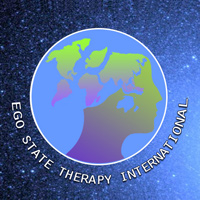A call for Research in Ego State Therapy
The power of working with the right states needs to be highlighted with more research. Some other therapies have benefited from hundreds of research projects and when positive results are achieved promoters of those therapies often refer to them as the "therapy of choice". Those who have learned Ego State Techniques understand the power of this therapy, but more CAUSAL research needs to be completed and published. Only a few Ego State experimental studies have been undertaken and published. A number of theoretical ego state articles have been published (see the research publication section of this website) and more of those will be welcomed, but the contribution that is really needed are studies that can demonstrate a causal effect, with either experimental design or quasi-experimental design.
Experimental Design includes studies that compare Ego State to either a control group or another therapy following random assignment to groups. Volunteers are randomly assigned to an Ego State group and a control group (or another treatment group using e.g., CBT), then the results are compared. The random assignment to groups allows the researcher to assume equal and comparable groups. If a pre-test is employed pre-test differences may be controlled for using the pre-test as a covariate in an ANCOVA. Examples of things that could be studied are numerous, including depression, PTSD, or using Gold Achievement Scaling, general treatment success on a variety of issues. A control group can be offered therapy following a positive result in the initial study
Quasi-Experimental Design includes time series designs and pre-test post-test multi group designs. Time series designs collect data over a period of time long enough to reveal a trend then an Ego State intervention is introduced and data is again collected over a period of time. This allows the researcher to complete causal research with a single group and to determine the lasting nature of the result. The pre-test scores are compared to the post-test scores to determine if a causal effect has been indicated. Pre-test post-test multi-group designs allow a causal effect to be assessed without random assignment to groups. Two similar groups are pretested. One group gets an Ego State intervention and the other is either a control or gets an intervention from another therapy. Then the two groups are compared on their post-test scores in an ANCOVA with the pre-test acting as a covariate to removed pre-test differences.
Gordon Emmerson Ph.D. offers design and statistical consultation for those interested in completing causal research in Ego State Therapy. He can be contacted at: gordonjemmerson@gmail.com
